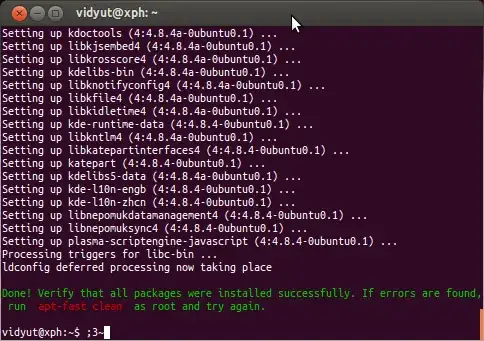I am not yet fully versed with the components installed by default on my machine, so I will apologize in advance if my question is silly.  shows that a lot many of (what I assume are) KDE components (
shows that a lot many of (what I assume are) KDE components (libk*, kde*, etc.) are being installed/updated on my machine. That is just the output from sudo apt-fast update && sudo apt-fast dist-upgrade -y from a few minutes ago.
- Can anyone tell me why?
- Can I safely remove them? If yes, how?
Thanks in advance for any replies.
System specs: Fully updated Ubuntu 12.04 x86_64 w/kernel3.4, Gnome, Unity, Core2Duo, 4GB